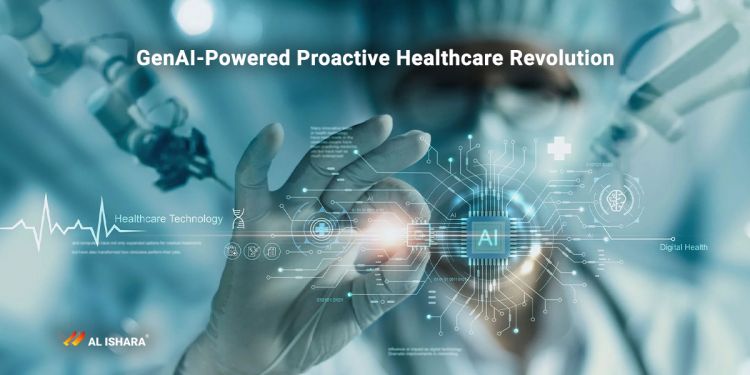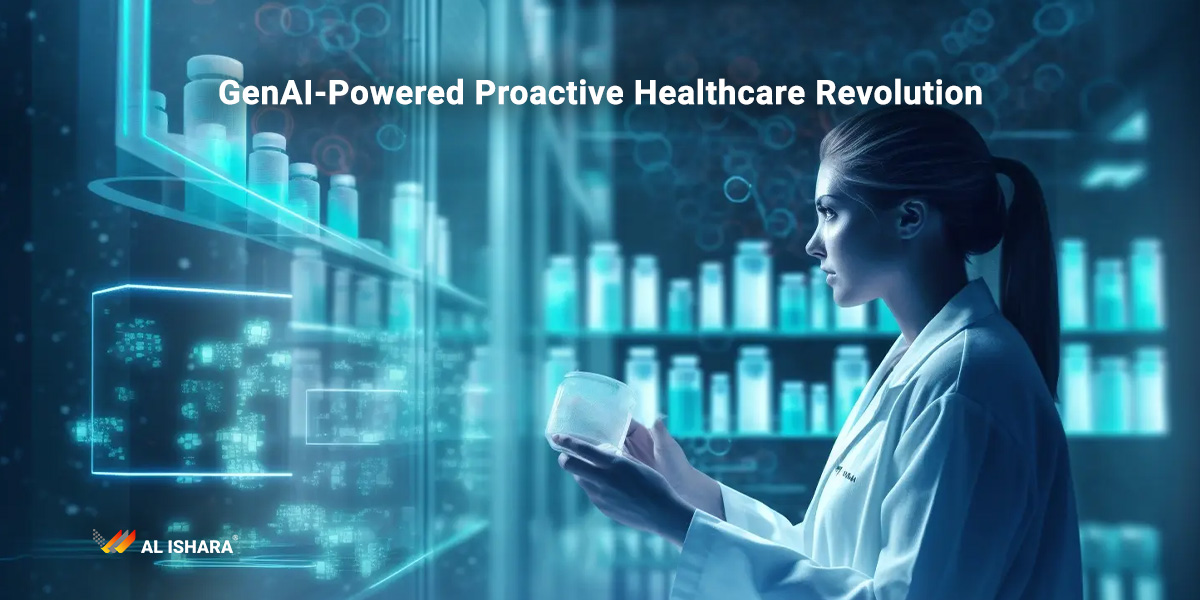
GenAI-Powered Proactive Healthcare Revolution
The healthcare industry is on the brink of a radical transformation, led by the emergence of Generative AI (GenAI). What was once a reactive system focused primarily on treating illness after it occurs is rapidly evolving into a proactive model that predicts, prevents, and personalizes care like never before. This new era, driven by intelligent algorithms and vast amounts of health data, promises not only to revolutionize patient outcomes but also to redefine how care is delivered, accessed, and experienced.
The Rise of GenAI in Healthcare
According to McKinsey & Company, healthcare organizations worldwide are no longer just experimenting with AI—they’re integrating it deeply into their operational and clinical systems. GenAI tools are now being used to summarize medical documents, draft clinical notes, and support decision-making with unprecedented speed and accuracy. These models can analyze complex data sets across genomics, electronic health records, imaging, and even natural language inputs to uncover insights that were previously hidden in plain sight.
The most exciting aspect of GenAI is its potential to shift care upstream from treatment to prevention. By continuously analyzing a patient’s data in real-time, GenAI systems can flag early warning signs of diseases such as diabetes, cancer, or cardiovascular issues, long before symptoms appear. This enables physicians to intervene earlier, tailor personalized care plans, and ultimately, extend healthier lives.

Enhanced Communication and Patient Experience
As highlighted by SPS Global, GenAI is also transforming how healthcare providers communicate with patients. AI-powered chatbots and virtual assistants are now capable of answering complex medical questions, scheduling appointments, and providing follow-up care 24/7. These tools not only reduce administrative burdens on clinicians but also create a more connected and supportive experience for patients, especially those managing chronic conditions.
Imagine a virtual nurse who never sleeps, remembers your entire health history, and can explain medical terminology in plain language. GenAI makes that a reality—fostering trust, improving health literacy, and empowering individuals to take control of their wellness journey.
Clinical Utility and Ethical Considerations
Research published by NCBI and Implementation Science emphasizes that while the promise of GenAI is immense, its implementation must be approached thoughtfully. There's growing evidence that GenAI tools can support diagnosis, automate clinical documentation, and streamline workflows—but these systems must be transparent, equitable, and rigorously validated.
Ethical considerations such as bias in training data, data privacy, and the need for human oversight are vital to ensuring GenAI serves all patients fairly. Interdisciplinary collaboration between data scientists, clinicians, and policymakers will be key to navigating these challenges.
The Future Is Proactive
GenAI is not just another technological upgrade—it’s a paradigm shift. It empowers healthcare systems to move from episodic, one-size-fits-all care toward a continuously adaptive model that anticipates problems before they escalate. The result? A healthier population, more satisfied patients, and a more efficient healthcare system.
As we enter this new era, one thing is clear: GenAI isn’t replacing doctors, it’s making them superhuman.




